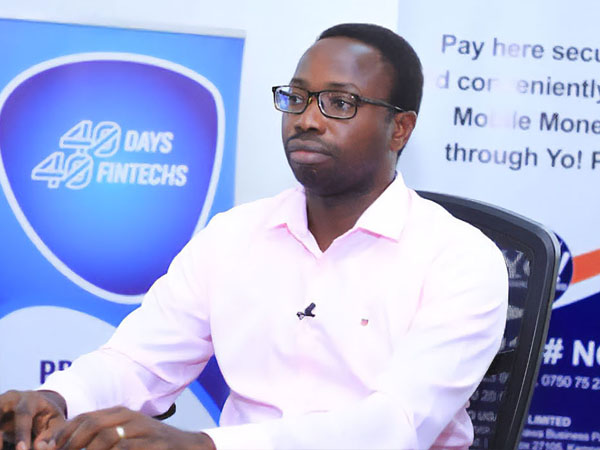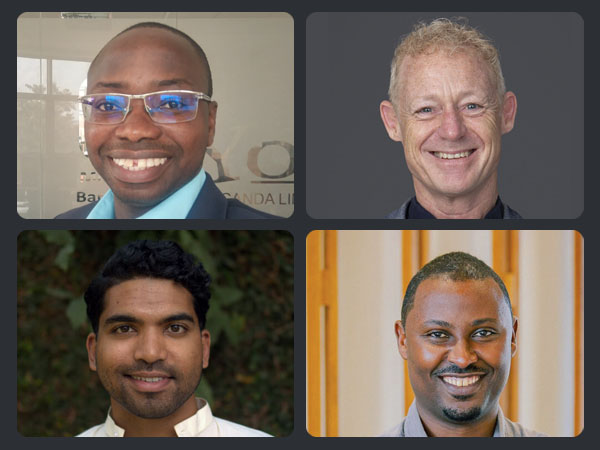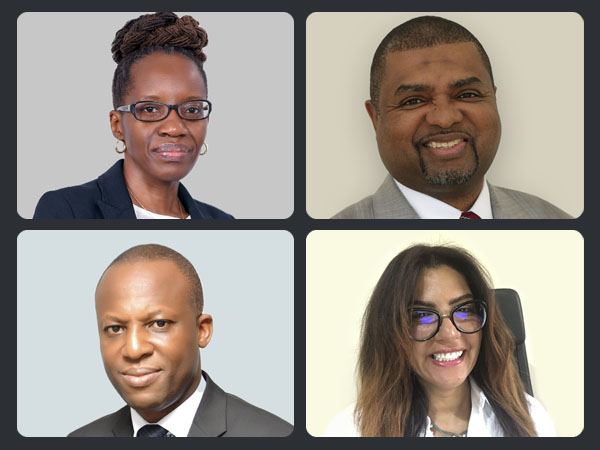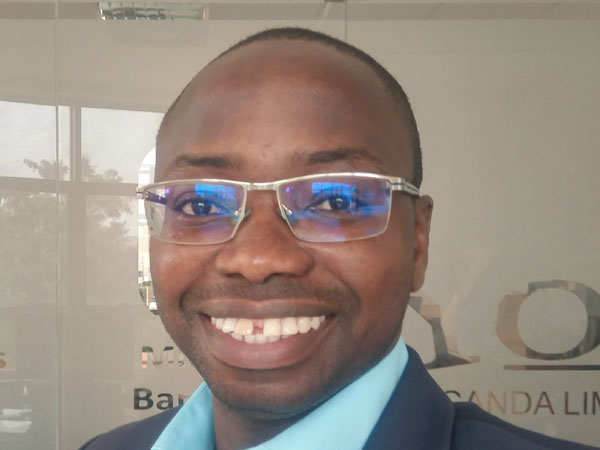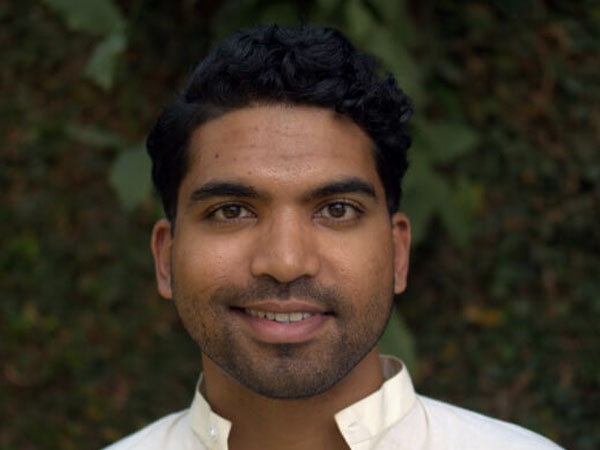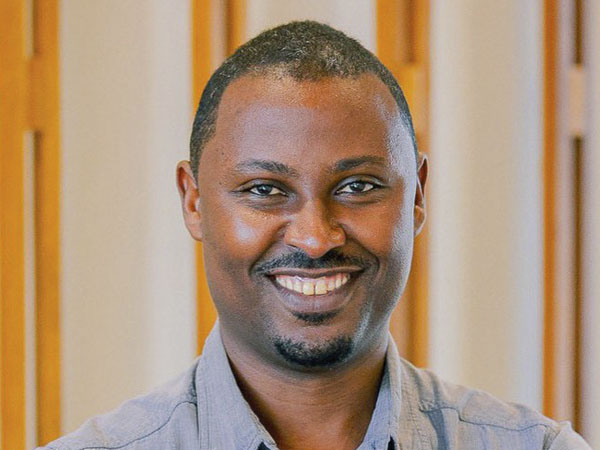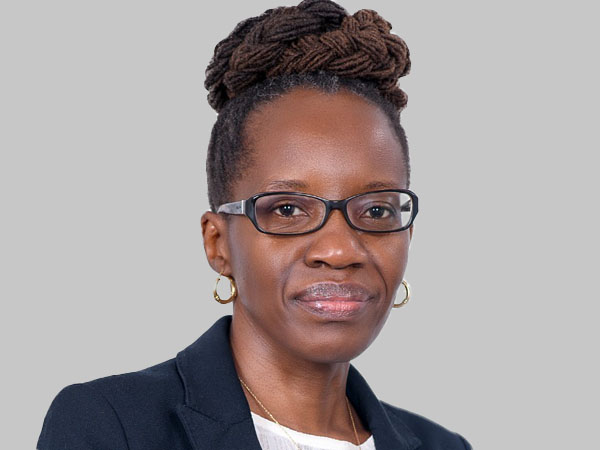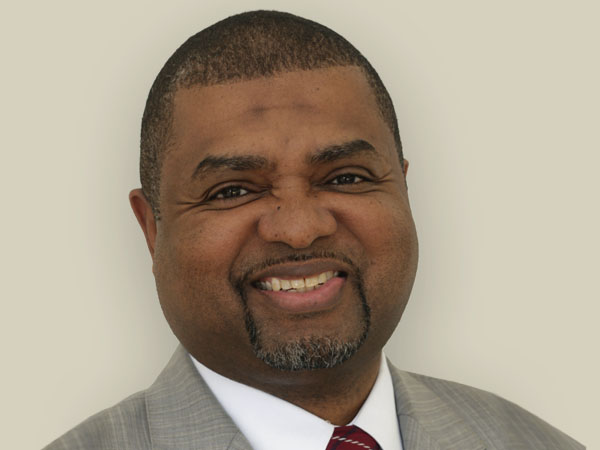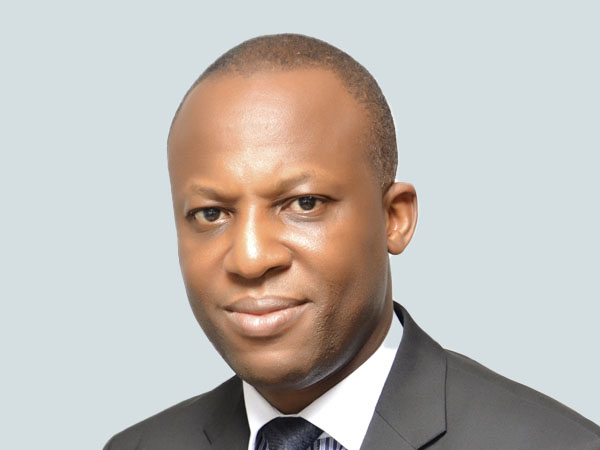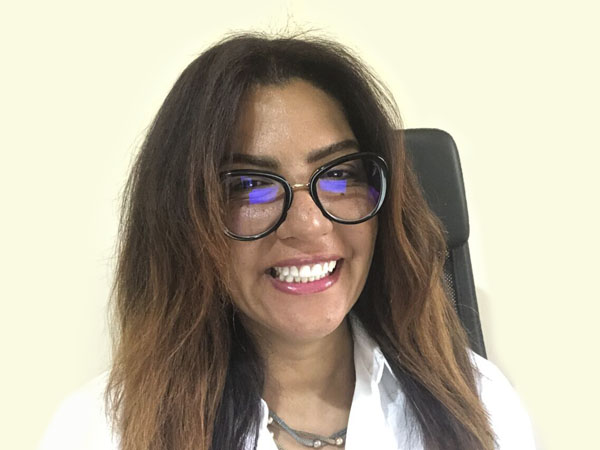AFRICA
FinTech
Fostering Inclusiveness
Africa: the world’s frontier for fintech
While global funding for fintech slowed in mature markets, a swath of savvy fintech investors are now targeting the African market, with a rise of investments of 894% year-on-year in 2021 totaling $1.6 billion. The continent represents a goldmine of opportunities based on its demographics, specifically its rising number of owned smartphones, reduced rates for internet access, large urban centers and its growing youth segment. According to MasterCard, electronic payments in Africa are expected to expand by 20% every year until 2025, reaching a total value of $40 billion. McKinsey predicts revenues from fintech firms in Africa could potentially expand up to eight times their value between 2020 and 2025, reaching a combined value of $30.3 billion.

Heightened investment is in response to the vast amount of unexploited opportunities the continent possesses. Currently, 90% of all transactions are carried out by cash on the continent, which represents real value for investors as penetration of digital banking climbs. Additionally, Africa’s adjacent financial services sector is expected to continue its colossal revenue growth. McKinsey’s analysts predict the sector will grow by an average of 10% per year, reaching revenues of $230 billion by 2025. The consultancy firm highlights subsectors with the most potential as blockchain, cryptocurrency, e-transfers and electronic wallets.
-
read more...
In response, African governments are attempting to create a functional landscape for new fintech startups in hopes of cashing in on the latest trend and leading the rest of the continent. “The absence of regulation may not be pressing for an entrepreneur, but it is paramount for investors,” said Noha Shaker, founder and secretary-general of the Egyptian FinTech Association. “If regulatory gaps are not addressed, there will be a lack of access to funding that will result in a smaller pipeline of start-ups.” So far, the continent’s largest markets have begun catching up to the seemingly endless segmentation of the fintech ecosystem, with more than 90% of African countries having regulatory regimes for digital payments. Larger regulatory shifts such as the African Continental Free Trade Agreement’s digital trade protocol and the Pan-African Payment and Settlement System have helped bridge the gap between markets for fintech entities. Additionally, Egypt, Kenya, Nigeria and South Africa are all looking at creating a pathway for fintech startups licensed in one market to join the other without needing to redo this first step.
"If regulatory gaps are not addressed, there will be a lack of access to funding that will result in a smaller pipeline of start-ups."
Noha Shaker
Another pressing challenge facing fintech startups is the continent’s brain drain; highly skilled talent is being lured from local grassroots projects to multinational firms and more developed markets. “There remains a lot of talent exploitation from Nigeria and Africa into Europe and the Americas,” said Ade Bajomo, president of Fintech Association of Nigeria. Other experts argue that the process is part of the natural evolution of the market. “A country cannot strive to be a global hub for tech and still want to play local when it comes to benefits and salaries,” said Ali Hussein Kassim, Founding Chairman of the Association of Fintechs in Kenya. “Local tech entrepreneurs must be more creative in terms of finding and retaining the right talent.”
Despite challenges, the market is primed for an influx in new forms of investment, with a dearth in funding the remaining stop-gate towards a flurry of upward growth. Josephine Olok, president of Uganda’s Financial Technologies Service Providers Association, points to the current gap in the market: “The majority of fintechs are built on the founder’s capital, with most of the funding originating from East Africa.” In the first nine months of 2022, Africa saw the beginning of a new paradigm, with more than 400 investors backing fintech projects, a year-on-year increase of 12%. The largest backers of this new movement were Nigeria-based Future Africa and American technology accelerator Y Combinator, with other foreign investment entities joining the fray. As the industry moves into 2023, these numbers are expected to rise and see African markets take their rightful place among the world leaders in fintech.
articles & interviews
Digital Payments
Leading Africa’s fintech charge
E-Commerce
Using ingenuity to tackle the African market
Asset Financing
Microfinancing entities tackle Africa’s largest challenge
Yo Uganda
High profits in niche markets
Founders
Pushing the limits
Enablers
A solid footing in raising awareness
Digital Payments
Leading Africa’s fintech charge

As digital penetration skyrockets in Africa, large e-commerce platforms are unveiling innovative systems in a bid to win the biggest share of the world’s last untapped mobile commerce market.
Africa’s fintech market is set to expand by 20% every year until 2025 largely led by the digital payments subsector that is actively increasing digital penetration on the continent. Africa’s fintech sectors are largely driven by the digital payments sector, with other segments following closely behind as the number of e-payments skyrockets. According to McKinsey, the digital payments industry in Africa pulled in $24 billion in 2020, with domestic payments taking the lion’s share of revenue at $15 billion. With only 5-7% of all transactions made on the continent through these digital channels, the market’s potential is mammoth. The global consultancy firm projects revenues of the African segment to grow in value by 20% per year to around $40 billion by 2025 as digital penetration continues to accelerate, compared to just 7% growth in the rest of the world.
"Mobile money has replaced the traditional rails powered by large global payment companies such as Visa, Mastercard and American Express."
Ali Hussein Kassim
said Ali Hussein Kassim, Founding Chairman of the Association of Fintechs in Kenya. “In Africa, 85% of all payments are made through local mobile money and national payment systems while only 15% is done through traditional payments such as debit and credit cards.”
-
read more...
However, the growing number of digital payments is not uniform across the continent, with separate markets leading the charge, specifically Egypt, Ghana, Kenya, South Africa and Nigeria, with the latter market seeing the fastest growth at 35% per year. Other markets with high potential include Ivory Coast, Senegal and Uganda. Gerald Begumisa, managing director of Yo Uganda, outlines the country’s e-payments development:
“The fintech space in Uganda is still in its early stages; there has been a lot of success, but there are vast opportunities for growth. Beside agriculture, there are other sectors within more urban areas that are largely untapped such as retail payments or payments in the transportation sector.” Yo Uganda was an early player in Uganda’s fintech scene and was the first to set up a multi-use mobile payment system in the country.
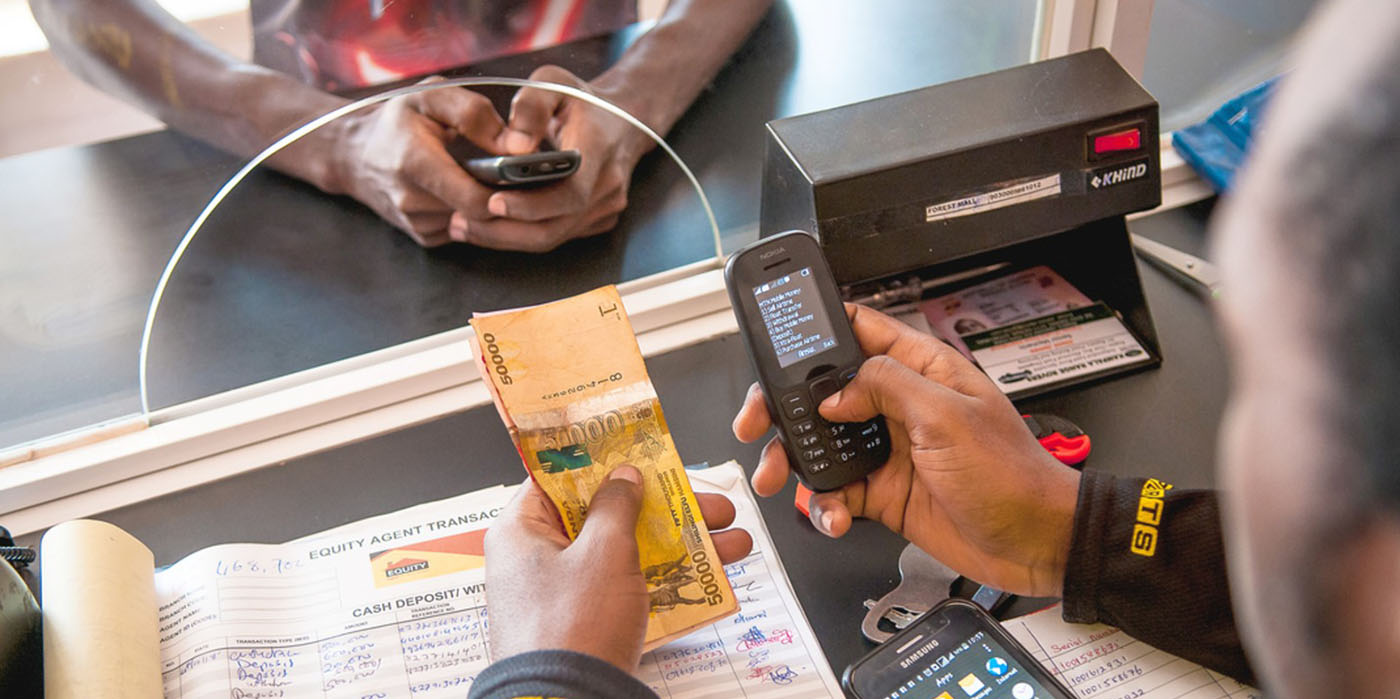
The digital payments sector is segmented into several growing areas. The first is instant payments, as evidenced by a growing number of related African systems such as Nigeria Inter-Bank Settlement System, Kenya’s PesaLink and South Africa’s Real-Time Clearing System. Additionally, digital wallets are becoming popular, which allow users to pay using QR codes or confirming transactions from their accounts. Popular players in this segment include multinational Mukuru, Kenya’s M-Pesa, Nigeria’s Shared Agent Network Expansion Facilities and Egypt’s Fawry. Another subsector that is gaining traction is the buy-now-pay-later segment that qualifies loans at the point of sale. “The market for buy-now-pay-later platforms is growing in Nigeria. One market study showed that this segment would grow on an annual basis of 60% and reach around half a billion dollars by 2023,” said Ade Bajomo, president of Fintech Association of Nigeria. “Statistics are compelling. Router conversion rates with a buy-now-pay-later facility go up from 20% to 30%. There is also a lift in the average ticket size when you offer these types of credits from about 30% to 50%.”
E-commerce
Using ingenuity to tackle the African market

As digital penetration skyrockets in Africa, large e-commerce platforms are unveiling innovative systems in a bid to win the biggest share of the world’s last untapped mobile commerce market.
While traditional industries have been slow to expand into African markets due to their reliance on strong economic infrastructure, e-commerce is taking advantage of its low dependency on conventional logistics to meet the continent’s high retail demand. According to the US International Trade Administration, the amount of e-commerce users in Africa is expected to surpass half a million by 2025, with a steady growth rate of 17% between 2017 and 2025. Analysts at StockApps.com predict the revenue for e-commerce in Africa will hit $46.1 billion by 2025, which is causing a flurry of investments and inward movement. Tim Steel, CEO of COPIA Global, a unique e-commerce platform in Uganda that targets middle and low-income segments, sees e-commerce as a revolution in access: “The opportunity for us to bring a business-to-consumer e-commerce offering to end users who have never had access to modern trade and retail is a real leapfrog moment against existing value chains.”
“We reach customers who do not have access to the internet, a smartphone, a credit card or in some cases a bank account.”
Tim Steel
-
read more...
One of the key challenges to bringing about fast penetration of e-commerce lines to African nations are the country’s current banking habits. Almost half of adults on the continent prefer to deal in cash and have no bank account. Additionally, only 2% of the population currently owns a credit card.
Markets that are expecting to drive the immediate growth of the segment are Kenya, which has the most bank accounts per capita at 88%, followed by South Africa at 82%, Nigeria at 51%, Morocco at 42% and Egypt at 38%. Noha Shaker, Founder and Secretary-General of Egyptian FinTech Association, points to the potential for fintech to fill this gap: “This was the failing point for banks and insurance companies. We have 370 million African citizens who are unbanked and excluded.”
Fintechs are rapidly trying to offer alternative options to bridge the continent’s high commerce needs with e-commerce platforms. For example, the use of mobile money platforms is becoming highly popular across the continent, which offer prospective e-commerce buyers additional options outside of conventional bank accounts and credit cards. Additionally, large e-commerce companies such as Twiga, TradeDepot and COPIA Global are looking to bridge the gap between e-commerce and the end user by setting up agents to sell products in low-density or logistically difficult areas to reach. “We reach customers who do not have access to the internet, a smartphone, a credit card or in some cases a bank account,” Steel said. “Having a human presence in the market is part of our secret sauce. We select agents who are trusted in the community, have some history with trading and who are tech savvy.”
Asset Financing
Microfinancing entities tackle Africa’s largest challenge

Growth of asset financing in Africa is seeing a boost as new fintech entities look to confront inequality and unlock economic development across the continent.
As the growth of fintech companies surge – tripling in number between 2020 and 2021 to reach around 5,200 entities – new diverse forms of asset financing are tackling what many consider to be one of the key challenges in developing the continent’s nascent industrial potential, namely lack of capital. According to McKinsey, small and medium-sized enterprises employ around 80% of Africa’s workforce yet more than half require more financing to get entrepreneurs off the ground. Ade Bajomo, president of Fintech Association of Nigeria, details the need for microfinancing: “Credit is a way to grow the economy and standard of living by those who meet certain criteria. The rationale is simple. People want to improve their standard of living and the ability to achieve it is often credit.” A slew of up-and-coming fintechs are addressing these issues – namely in the form of vehicle and mobile phone lending.
“We found that it is much more effective to lend in the form of productive assets or inputs for business that are guaranteed to generate income.”
Kaivan Sattar
-
read more...
A prominent example is Assak, which was founded in June 2016 in Uganda. As an early outlier in the continent’s microfinancing picture, the company tested the model, first providing loans to small entities in the agriculture sector and then moving towards salary loans for individuals and capital loans for small and medium-sized enterprises. “The biggest lesson we learned was that when you are investing cash into low-income households, there are many types of additional needs that have not been met for some time. Perhaps they have not paid rent or school fees or bought food or medicine,” said Kaivan Sat-tar, founder of Assak. “We found that it is much more effective to lend in the form of productive assets or inputs for business that are guaranteed to generate income.” The company now offers lending in the form of motorcycles through its digital platform to empower owners to use the asset to repay the loan, all while keeping tabs on the vehicle itself should it need to be reclaimed. Using this model, the company reclaimed 95% of its loan repayments in the first three years it began in the segment.
Other prominent players are now joining in, including fellow Ugandan motorcycle financing entity Tugende and Nigerian start-up Moove, the latter of which provides all-round vehicle financing and has expanded to six cities across the continent. However, asset financing has not remained in the vehicle category. Smartphone microfinancing has seen a surge in growth, led by Nigeria’s Intelligra and Keza that look to enhance digital and financial inclusion for low-income citizens. Additionally, Nairobi-based M-Kopa has extended its financing services beyond mobile phones to include solar and low-energy assets such as lighting and fridges. The cleantech entity has grown significantly, hitting fifty second on the Financial Times’ list of fastest growing companies in Africa in 2022. Alternatively, Nigeria’s Sunfi received $2.33 million in seed funding in February 2023 in its mission to finance and lease solar technology for rural households and businesses. With more entities stepping up to the plate, innovative microfinancing activities are now seen as a legitimate pathway for economic emancipation in Africa.
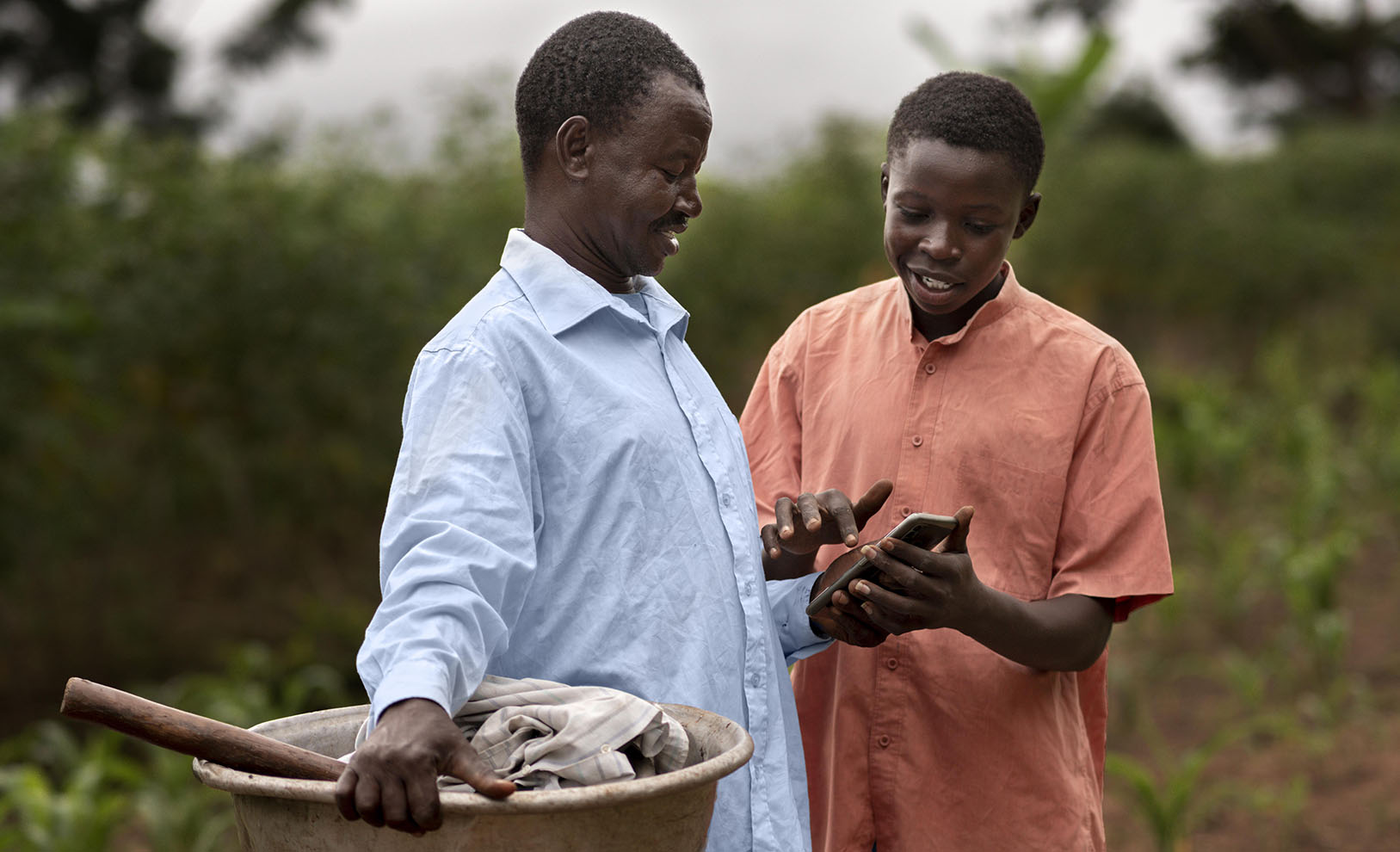
Founders
Pushing the limits
As Africa’s fintech momentum builds, its new generation of leaders are gaining notoriety – not only for impressive growth of their individual start-ups but for the innovative ways they are tackling the continent’s challenges. These founders are the beginning of a tidal wave of fintech activity in the continent that analysts like McKinsey are expecting to grow eight times in terms of returns between 2020 and 2025 and hit revenues of $30.3 billion. Investors are now turning their heads to see how these new companies are reaching such brave new heights.
We have brought together insights from frontrunners of the continent’s top up-and-coming markets, including Uganda and Kenya, who are pushing the limits of digital inclusion, asset financing and consumer access.
Gerald Begumisa
Interview
Tim Steel
Interview
Kaivan Sat-tar
Interview
Davis Nteziryayo
Interview
Gerald Begumisa
Managing Director of Yo! Uganda
Growth from experience
Gerald Begumisa, Managing Director, Yo! Uganda, details his company’s rise to prominence since 2006 amidst a time of never-ending changes in the information technology space and the company’s drive to promote positive development of Nigeria and Africa’s socio-economic situation through technological innovation. Yo! Uganda provides mobile value-added services such as mobile payments, mobile surveys and a multipurpose telephone billing platform.
“The fintech space in Uganda is still in its early stages; there has been a lot of success, but there are vast opportunities for growth.”
Gerald Begumisa
-
read full interview... -
What kind of challenges have you needed to overcome since founding Yo! Uganda?
I started Yo! Uganda after completing my electrical engineering degree in 2006. I was fortunate to have been working with an information technology company throughout the time I was pursuing my engineering degree. This helped me build and solidify my skills and shape awareness and knowledge about opportunities available in the tech space. I founded the company with three people I was working with. We pooled together funds to get the company off the ground because we did not have what is currently available with huge venture capital rounds. On the contrary, our start was modest. We had a four-meter-by-five-meter office, which was quite affordable.
The great thing about the technology space – which was true then and even more so now – is that the entry barrier is not very high compared to other industries such as manufacturing. Here, the basic requirements are some sort of computing device and the internet. Back in 2006, the internet was a bit more expensive than it is now because Uganda was primarily connected through satellite. Two or three years from then we had fiber optic undersea cables coming on line, which drove down costs. -
How has Yo! Uganda’s services evolved over time and what value has the company brought to the market?
Since we started, we have always focused on how to use technology to introduce efficiencies and drive down costs for businesses and organizations. At the beginning our focus was on SMS, unstructured supplementary service data and interactive voice response, which were services available at the time. We tried to help organizations solve various issues such as providing banks with a transaction alerts facility and enabling service consumer surveys to be done through SMS.
When mobile money services were introduced in 2009, the focus was mostly on person-to-person payments, which is a solution that millions of people could use. Mobile operators often concentrate on the mass market. We saw this as a great opportunity to extend the benefits of mobile money to enable person-to-business payments and business-to-business-to-person payments. This enabled financial institutions by integrating their systems with the mobile money ecosystem. In this way, people could seamlessly transfer money between two institutions.
Since then, there has been a great increase in throughput, stability and reliability. While we had initially focused on just enabling disbursements and collection through mobile money, we have since evolved to include many other access channels, such as mobile apps as well as integrating with financial institutions and international remittances. We have done a great deal of customization based on feedback and the specific needs of our customers; our service now has many more uses. We believe we have greatly helped extend the reach of mobile money services, which is by far the most popular digital transaction channel in Uganda. -
What kind of growth strategies is Yo! Uganda considering?
We are looking at three main ways of expanding. The first is what we have done from the start, which is reinvesting our profits or organic growth, which is a slow method. We are also looking at venture capital options, particularly venture capitalists who are a great fit for our stage of growth. Most venture capitalists invest in companies much younger or in much earlier stages of growth. From the perspective of a venture capitalist, our situation is a slightly longer conversation.
We are looking for investors who understand how we have grown and where we started from, one who has a similar vision to expand our services throughout various African markets. We want investors who are interested in implementing solutions that solve real problems for our customers and not necessarily focusing only on valuation.
Additionally, we are also considering credit from traditional financial institutions. Initially, this was not much of an option because the fintech industry was not well understood. In the past, traditional financial institutions focused mainly on traditional industries such as agriculture, manufacturing and distribution and conversations about raising debt with them was difficult. However, there is now a greater understanding; we have been able to prove that fintech works and that the segment can be a reliable line of business.
We have concrete plans to compete in other African markets. We entered Zambia in 2019. We intend to be competitive by taking from the extensive learnings we have had operating in Uganda and taking the same approach of listening to customers in other countries and focusing on what their specific issues are. Many things we have already done in Uganda can be replicated, but we must recognize that each country is unique and faces different challenges. We will take the same approach and essentially walk the journey with our customers.
-
How have Ugandan regulators evolved when it comes to the fintech space and how has it benefited the company?
Digital financial services have experienced a lot of growth in Uganda. Since the services were introduced in 2009 and our service came live in 2010, there have been significant strides in pushing down barriers and adoption. We are fortunate that in Uganda our regulators have historically adopted a more permissive style of regulation. They have encouraged innovation while at the same time provided guidelines and developed appropriate legislation.
We acquired our license for large funds transfer in November 2021. There is another class of license called the sandbox, which enables smaller entities who wish to test out solutions and obtain permission before going through the full-fledged licensing process. We were fortunate to have entered the market early, which gave us the opportunity to test various solutions and learn along the way. With the coming of the new licensing regime and with our acquisition of the license, we see a very bright future in terms of increased trust from our existing customers and usage of the services. There are certain types of customers who would not consider taking up our services if they were not dealing with a regulated entity, which is a barrier we have faced in the past. -
Yo! Uganda unveiled plans to reach out to and include 300,000 farmers across the country through a $250,000
grant partnership with United States African Development Foundation and Mastercard.
How have these and other partnerships helped strengthen the company’s position in the market?We have always viewed the partnership approach to growth as being valuable and the way to go; it is costly for any one entity to try to do everything on its own. The partnership with the United States African Development Foundation and Mastercard brings together Mastercard’s experience in the payment space, particularly in the banking industry, our experience with mobile money payments and a level of de-risking from the United States African Development Foundation.
The agricultural sector contributes a great deal to Uganda's gross domestic product and has challenges that are unique. Most of its activity takes place in rural areas, which have issues with literacy, adoption of financial services and network connectivity in some cases. We could not copy and paste ideas that would have worked in urban areas and expect them to work seamlessly in rural areas. We have teams that provide literacy training on basic financial inclusion and get people signed up for mobile money. Through this partnership, we will achieve our goals of bringing digital financial services into the agriculture sector, which is the biggest part of Uganda's economy.
The fintech space in Uganda is still in its early stages; there has been a lot of success, but there are vast opportunities for growth. Beside agriculture, there are other sectors within more urban areas that are largely untapped such as retail payments or payments in the transportation sector. We are very excited about these opportunities and the growth that could be achieved.
-
What kind of challenges have you needed to overcome since founding Yo! Uganda?
Tim Steel
CEO of COPIA Global
Equity through technology
Tim Steel, CEO, COPIA Global, highlights how fintech is a vehicle for social development in Africa and the company’s efforts to create a long-term sustainable digital ecosystem that supports both its employees and its consumers. He also highlights challenges that African fintechs must overcome and the staggering potential the African market has in the new digital economy. COPIA Global provides a unique business-to-consumer digital platform focused on middle- and low-income consumers.
“We reach across technical and aspirational aspects; our work brings a sort of heart-and-mind reward in terms of the impact we create.”
Tim Steel
-
read full interview... -
Can you describe COPIA Global’s unique e-commerce platform?
COPIA is the first and only business-to-consumer e-commerce provider that targets the 750 million middle- to low-income consumers across the continent. Many are in rural areas, but not exclusively. Some of our customers are in peri-urban or dense urban locations. Our platform solves problems with consumers accessing goods and services and manufacturers in their distribution operations. For example, we reach customers who do not have access to the internet, a smartphone, a credit card or in some cases a bank account. We target consumers with very small wallets who live in geographically hard-to-access areas. Overcoming these hurdles is necessary for e-commerce to thrive in Africa. Our offering – which continues to develop – is aimed at taking the consumer on the journey from being offline to a fully enabled e-commerce consumer. We want our customers to have similar access to e-commerce as those in the western world or more affluent urban areas across the continent.
It all starts with the customer. Our platform is both internal and customer-facing. In both cases, the software development starts with the user or customer. We have an ongoing insights process that builds deep consumer understanding. Our product team immerses themselves in the day-to-day lives of the consumers, our agents and our transporter to understand how each segment works. From there we build online and offline solutions. It is a constant voyage of discovery and invention. In simple terms, the platform has gone from a paper catalog to a fully built progressive web app where consumers can access their daily needs and wants, such as food, construction materials, baby products, pharmaceutical goods and fashion.
According to the Financial Times, COPIA is now one of the fastest-growing companies in Africa. Our revenues in Kenya and Uganda are growing in triple digits, which is what we expected given the scale of the market that is available to us. We are growing exactly as planned. In East Africa our triple-digit growth will continue for some time as we are far from saturating the market in terms of our presence on the ground, our presence in the digital market and our presence in additional verticals that our platform could support. -
How does COPIA Global’s platform differentiate from others on the market?
We understand that problems go beyond a logistics conversation. Many smallholding farms, for instance, have a problem in accessing finance. One of the great distinguishing factors about COPIA is that we offer a one-stop-shop for both physical goods and access to finance. We can be cost-effective for the consumer because we know more about our consumers than anyone has known before.
We are a business-to-consumer organization that does not only rely on surveys to understand consumer habits and preferences. We gain real data from actual transactions across the entire base of our 2 million unique customers that allows us to make focused and specific credit-rating decisions. Offering both physical goods and finance means we combine the economic benefit of both products and offer the lowest prices and the most attractive rates. We have built a trusted relationship and a reputation for quality with consumers and our agent networks. We have a very compelling value proposition.
We have discovered that trying to force-fit solutions that have worked elsewhere is not necessarily going to work in our environment. We run pilot experiments where we integrate our agents with how we think products could be beneficial. Invariably, the agent network and the customers will come up with a solution that is effective that we can easily adapt into our platform. By co-creating solutions, we also ensure we have a reliable delivery of products. -
What has COPIA Global done to retain its skilled workforce in a market known for its brain drain?
We apply the same thinking we have with our consumers with our employees. So far, we have not had any major issues with attracting or retaining talent. We have made conscious efforts to recruit top performers in all areas of our business. Commitment begins at the selection process; one must look for a pool of people who are going to be stimulated by what you are doing. We reach across technical and aspirational aspects; our work brings a sort of heart-and-mind reward in terms of the impact we create. Building a value proposition that mixes technical challenges, positive corporate culture and real impact is important. Our senior management team is a combination of people who have done similar things in large multinational organizations, have experience in mass markets and are prepared to get their boots dirty.
The presence of tech giants such as Microsoft and Google in Kenya is going to put pressure on specific tech skills, specifically for developers. We are recruiting talent with tech and analytic skills in Kenya, East Africa and elsewhere if we need to. Our goal is to create a diverse team that protects us and exposes people to different experiences such as those in India who are doing similar things. In the short term, there is a risk that many organizations like ours will experience some loss of human resources. People are allured by brands and the potential for short-term reward. We are aware of the risk but are not daunted by it. -
What are the main goals of your unique agent system?
Agents provide three major roles for us. The first is being a fixed point of delivery for multiple customers’ orders. This overcomes the issue of customers without fixed addresses or places that are hard to access physically with vehicles. Second, they provide a point of trust and introduce customers to a new method of shopping. Having a human presence in the market is part of our secret sauce. We select agents who are trusted in the community, have some history with trading and who are tech savvy. Last, our agents provide a first point of customer care and deal with any issues end users have. Our customers would rather speak to a person they know than chat with a bot.
We put a lot of time and effort into working with and developing our agents by ensuring we understand their position, how we can be relevant to them and why they would want to work for us. We have a balanced scorecard approach to managing individual agents. We have different tiers of agents based on their performance that acquire varying benefits from COPIA. This inspires agents to improve their performance and attracts new agents to join. -
For what reasons are a high proportion of your agents women, and what benefits do they receive by being an agent?
The informal sector in East Africa and across the rest of the continent is dominated by women who are traders either at a very micro level such as managing the family farm or in a slightly less micro level such as owning a café, being hairdresser or running a mobile money outlet. It is more by accident than design and is representative of the way the economy works. The bulk of buying for the family units and decisions that are taken on how the family’s wallet is spent is taken care of by women, and it is natural we would have an agent network that understands our consumers.
At the same time, our agents benefit by increasing their incomes around 35-36%. This is highly transformative because it means they can invest working capital in their businesses and provide for their family such as sending their kids to school. Every agent has a story of why being a COPIA agent has been valuable to them. It is part of the positive impact we mean to create and is very visible.
Additionally, we build our offering by contributing agent credit for working capital and have them hold inventory at their locations. Being a COPIA agent has gathered weight as being a desirable occupation. Agents with the COPIA brand outside their store add value to their business because they get more traffic and increase their income.
-
How has the company changed its strategy in building up investment partners as it grows in scale?
This has evolved over time from initial angel investors and small pieces of seed capital. We are now a lot more purposeful in the way we reach investors. Attracting better, more credible and more reputable investors has a rolling impact on your ability to attract more. We ideally look for investors who bring us experience in our wide business areas such as in fintech or distribution. We aim for ones who are focused on areas we plan on expanding into.
Investment networks are particularly important to us. We are currently working on recruitment in future expansion markets in West Africa. Several of our investors have given us tremendous support by reaching out to their networks and identifying people who are the right fit. Knowledge of potential partners comes through our network of investors. Additionally, some investors have high skills in governance, which is more and more critical as we scale up and our business becomes more complex.
Our investors do not specifically have an expectation of receiving exact numbers in a multiple set of years. Their expectation is that we build a great pan-African business that is highly scalable both geographically and vertically. Our concept is highly defendable given the complex set of problems we have already solved. Investors want a business that will sustain profit. Our model is very different to the top-of-the-pyramid approach that many businesses adopt. -
What metrics does Copia Global look at when considering expansion into new markets?
Since opportunities are defined by their scale in the markets we are targeting for expansion, our total value proposition is greater than ever. We look at certain criteria in assessing market attractiveness. In East Africa, the presence of modern trade supermarkets is relatively high, which one would think would be a natural detractor to the COPIA model. In West Africa, modern trade is by comparison virtually nonexistent. Even in southern Africa, where modern trade is centered on the more affluent urban populations, there are vast pools of underserved consumers across all the countries. Everywhere we look, there are great opportunities.
The opportunity for us to bring a business-to-consumer e-commerce offering to end users who have never had access to modern trade and retail is a real leapfrog moment against existing value chains. We have demonstrated our successful model by moving into Uganda. It is system and process driven and therefore very replicable.
It is not difficult to work out what markets we will target. Of the 54 countries in Africa, the gross domestic product and potential for most businesses is greatest in probably seven or eight, and our expansion plan will follow these markets. We see a deepening number of trading zones within the continent appropriate for our model. From a macro perspective, once we have a business established as a central hub of trading blocs, it becomes easy for us to lift and drop into surrounding countries using teams we have built up on the ground. We will first address larger markets and over time cascade into surrounding countries. -
What major challenges do fintechs in Africa face?
The usual macro-economic challenges are the same ones fintech businesses face, including the cycle of political instability that exists in countries every four or five years and the approach of governments to enable long-term gain or generate short-term profit. Fintech is often seen as an opportunity to improve tax collection, which is a very short-term approach. The ability of technology and fintech to unlock economic development is proven. We hope that governments will take the longer-term viewpoint in approaching regulation. Another issue is accessibility. Many fintechs are focused on urban-affluent consumers that already have access to smart devices and can already afford data. This will create a lot of competition for consumers. Solutions need to filter down to a broader base within the population, which is what we have known from the start.
-
What kind of investment potential exists in the African continent?
Potential investors should expand their peripheral vision beyond what they are used to seeing or believing about Africa. There is a very large fast-growing market out there with a very young population that is going to adopt every single piece of technology that is put in front of them so long as it adds value. There is a world beyond the denser urban areas for investors who want to make a difference. If people can just expand that peripheral vision and be open to more diligence, there is a vast array of new investment opportunities waiting for them.
-
Can you describe COPIA Global’s unique e-commerce platform?
Kaivan Sat-tar
Founder of Asaak
Africa’s new digital economy
Kaivan Sat-tar, Founder, Asaak, talks about the power of microfinancing in supporting the economic growth of individuals when used in a sustainable format. He also advises both companies and investors to align their vision and create a better environment for end users. Assak currently finances motorcycles through its digital platform with the goal of raising personal economies and providing a sustainable steppingstone towards financial independence.
“It is a very exciting time to get into fintech in Africa; mainstream investors have begun to realize that this is the last frontier market in the world.”
Kaivan Sat-tar
-
read full interview... -
What key insights did Asaak gain from its journey as a digital lender?
Before I started the company I spent time in Bangladesh – the birthplace of microfinance – to understand what challenges they face. When we were founded in June 2016, we were the very first digital lender in Uganda. At the beginning we tried different approaches to digital lending to see what would be effective and scalable. We tried providing agriculture loans to small holder farmers, we provided salary loans for employed corporates and we provided working capital loans for small and medium-sized enterprises in both urban and rural areas.
The biggest lesson we learned was that when you are investing cash into low-income households, there are many types of additional needs that have not been met for some time. Perhaps they have not paid rent or school fees or bought food or medicine. As much as you lend to a business, they need to solve their survival problems first. Whatever remains is then injected it into businesses, which creates challenges in repayments. There are other non-commercial forms of assistance that are required such as natural disaster relief. At the very bottom of the pyramid there are other types of training and capacity building that is necessary, which private sector companies are not able to provide. There is a role for commercial products to help the poor graduate to the middle class and a need for more philanthropic assistance.
We found that it is much more effective to lend in the form of productive assets or inputs for business that are guaranteed to generate income. In this scenario, borrowers can more easily make loan repayments. There are many benefits to this asset financing model. For example, there is no need for any pre-existing collateral from the borrower. In the past, we gave cash loans between $2,000 and $6,000, which were large enough to require security measures and restricted our market size. With the asset financing model, there is no pre-existing assets that the borrower needs because we are already financing something productive. Additionally, it is also legally easier to sell off the asset in case of a default since assets still belong to the company until the client has fully paid his loan. This motivation for the motor driver or whoever who is receiving their first productive asset is quite powerful and has kept our loan repayment rates at 95%, even after doing thousands of motorcycle loans in the past three years. -
How does your microfinancing system positively impact the lives of your clients?
Our default rate is lower than the default rate of auto loans in the US, a country where they have a functional credit score and a strong legal system for lenders to take recourse from borrowers. We believe this is because every motorcycle we disperse supports a family of five. These are highly productive assets that allows our clients to pay rent, buy food and pay tuition. By tracking them using GPS, they are comprehensively insured. There are low death and theft rates as people know branded vehicles can be tracked. We now disperse only productive assets and inputs on credit that are guaranteed to raise the income of the borrower. We have found this is a much more effective model of lending.
-
How does Asaak assess who is a responsible borrower?
When we make a credit decision of whether to give somebody a motorcycle or not, we are interested in knowing if they can pay back the loan or have the willingness to pay back the loan. There are different ways to measure both sides of this equation. We have a data partnership with the largest ride hailing app in the industry, which is safe for all ages. They share the data of their top drivers based on trips and passenger ratings. We use this to estimate the driver’s monthly and weekly income and whether or not they would be able to afford the loan. From behavioral data points such as the driver's passenger rating, we get an indication of how he treats his customers, which we have seen correlates with the performance of loans.
-
How is Asaak reaching out to customers who are without smartphones or not online?
Not all drivers are part of our platform; the vast majority of the industry is still offline. To work with offline drivers who do not have smartphones, we work with what are called border stages in Uganda and other parts of East Africa. Around 100 drivers all park their bikes in the same area of the city, which is licensed and regulated by the government. Drivers pay an annual fee at these sites to park their bikes. In charge of these nodes are elected chairmen and other managerial positions within the state. We partner directly with these leaders who help us with marketing, onboarding new clients and recovery in cases where we are not present.
-
Can you give us an overview of the company’s expansion plans?
As a fintech lender we are always converging, whether it is accumulating debt to grow our loan portfolio and buy productive assets or raising equity to help with our software and tech development. We sometimes work in partnership with our bank partner, Standard Bank Group, and will be doing more fundraising to help us with our regional expansion. Kampala has only 30% of the country's motorcycle market. The other 70% comes from semi-urban and rural areas. We are in the process of opening more branches across the country and the region.
Motorcycles are quite common in eastern West Africa. We are also targeting East Africa because of the high proliferation rate of mobile money that makes receiving payments fast and cheap. We are looking at Kenya, Tanzania, Congo and Rwanda before moving on to West Africa. We are also eyeing expansion throughout Eastern Europe.
As for our business segments, we are quite bullish on sticking with the mobility sector. It is good from a lending perspective because clients have daily cash flow. It is very hard for drivers to say they did not have any clients that day; there is always someone who needs to send a package or move from one part of town to another. Agriculture – while being Uganda’s largest sector – is a seasonal business. As long as there is unemployment, there will be demand for motorcycles. Being a driver is a substitute for employment. -
What advice would you give to African businesses looking for investors?
It is important to make sure you are working with the right partners. We did not fully grasp this when we did our first fundraising in 2017 where we raised our seed of around $1.5 million. It is very critical to know exactly where you are taking money from because it is akin to a 10-year marriage when you bring shareholders into your company. When we had no investors, the founding team did not require guidance but required money instead.
We were extremely lucky to get the right investors in our first seed round and after as well. All our visions and business objectives were aligned. The style of American venture capitalism is more hands off compared to European and African investors where they often have big funds that they deploy to many companies. They are there when you need them if you need to reach out for advice, but they trust you to build the company the way you see fit. It is a very exciting time to get into fintech in Africa; mainstream investors have begun to realize that this is the last frontier market in the world. In 2021 we started seeing many mainstream and commercial investors enter the continent who had not considered it before. -
What should investors interested in the African market watch out for in terms of the type of companies they
invest in?
My advice to investors is to look at what value fintechs are providing their customers. There are a great number of fintechs that have high returns but can be predatory in practice. There are many companies with high default and interest rates because they are doing risky types of lending. The result is that many customers start off with high-interest debt because they took a loan from a fintech company and used the money in unproductive ways. Investors need to be aware of interest rates different types of companies charge and find out exactly what customers are doing with the capital.
-
What key insights did Asaak gain from its journey as a digital lender?
Davis Nteziryayo
Co-founder & CEO of PesaChoice
Equity through technology
David Nteziryayo, CEO, PesaChoice, talks about challenges faced by Africans and how fintech companies are successfully enabling social change while remaining profitable for shareholders. He also outlines the reasons Rwanda’s business ecosystem is seeing high growth rates in its fintech sector, including regulatory and political support. Nteziryayo founded PesaChoice in 2019 to help those without formal employment to access financial support and microfinancing.
“Venture capitalists are now seeing that new ventures in Africa can be both profitable and create positive change at the same time.”
Davis Nteziryayo
-
read full interview... -
What was the motivation behind establishing PesaChoice?
There is a large problem with access to finance in the African market. In a place like Washington D.C., one can get a credit card at a young age to use in emergencies and many people have savings to pay bills. However, it is different in Africa. We have less than 20% of the population with formal employment that provides a reliable monthly paycheck, health insurance and other benefits while the rest of the population does not. Typically, individuals rely on family. Additionally, we may require things that are not expected. For example, we do not have health insurance in most of Africa. If one has a health emergency, one must pay. Another challenge is that banks in Africa do not care about individuals in these situations; they only care for 15-20% of the population with collateral who are considered high-net-worth individuals. We realized there were opportunities in solving these issues.
At PesaChoice our goal is to understand people’s income and work with them through the extension of micro loans. The company is focused on financial inclusiveness through data. We built a human resource platform that manages employees and processes payroll. Through the platform businesses hire workers and pay them a daily rate. The software is specifically designed for the African market and its casual workers, such as construction workers, farmers and cleaners on the streets without work contracts. Through the system we collect data and determine how risky a person is in terms of credit. In this way, we can safely offer individuals access to funding on their phone within minutes. Additionally, we want to teach people how to save. Putting aside 5% of one’s earnings creates interest over time, which allows people to move forward on their own without needing to borrow. This is one of our passion projects. -
How has recent funding given the company the opportunity to expand its regional footprint?
Funding is tricky; we do not have many options on the African continent. However, this is changing. Companies like Tala, Flutterwave and Cheaper Cars, for example, are all raising big money. In the US, many individuals raise money on a single idea, but in Africa one requires a product before one can get someone to believe in them. Norrsken, a Swedish company focused on impact, helped us raise funding. They introduced us to a few other venture capitalists who participated in the round at the end of 2021. We can now provide a fair wage and stock options to our staff and have expanded.
To move into full scale operations, we need to move the product beyond Rwanda. We expanded into Kenya and Ivory Coast in May 2022, including a client in Kenya with almost 3,000 employees and a company in Ivory Coast with close to 11,000 people. We want to replicate the same market size we have in Rwanda in these countries. In the next few years, we would like to be in 10 new countries, but if we can afford to go to three to five countries it will be fantastic. The Sub-Saharan African market contains more than 1.1 billion people with around 80% of these individuals in informal working positions. If we can corner even 1% of the market, it would be extremely transformative.
-
What is your assessment of Rwanda as a viable starting point for fintech entities?
Rwanda is a good pilot market. The government has done an amazing job in making sure regulators support growth. There are few constraints in setting up a company and beginning to operate. Startups in other African countries are met with initial fees of around $1,000 on top of legal costs to deal with regulators. Most tech startups do not have this initial capital. Rwanda allows companies to register in 30 minutes with no charge.
Additionally, the Central Bank of Rwanda has created a sandbox for revolutionary technology that does not require a fee for a license. A business is given one year in which to gain enough traction to attract investors. This is what we have done so far, and this is what Rwanda provides. Beyond the regulators, the government has been at the forefront of innovation. It is one of the few countries in Africa where if one writes an email or WhatsApp message to a minister, they will respond within minutes. The government is actively backing young entrepreneurs no matter how big or small, which has been the driving force behind recent successes and accelerators such incubator CcHUB Design Lab entering the market. -
What does the horizon look like for the rise of fintechs in the African continent?
Investors are now looking at African fintechs, with investments more than doubling from what they were in 2020. In Sub-Saharan Africa most citizens do not have access to the same supports that are present when you have developed infrastructure, e-commerce platforms and financial services. There are large untapped segments in Africa that require scalable solutions that investors in Europe and the US should take a chance on. While a primary drive is to make money, impact is a goal for many of us. Venture capitalists are now seeing that new ventures in Africa can be both profitable and create positive change at the same time.
Like with any market, Africa has good and bad aspects, but the continent is mostly known for the bad. However, there is a changing perspective. Additionally, we have a young generation; the average age is between 20 to 30. While we do not yet have the consuming power of other markets, we have the numbers. The East African Community is leading the way. For example, Kenya is well known worldwide as having a prominent financial technology ecosystem. New opportunities exist in translating technologies like blockchain used in Europe, Asia, North America and South America into the African context, which cannot simply be copy and pasted. Investors can build required platforms that are scalable in at least 20 countries. People are opening their eyes and bank accounts, which will hopefully translate to change in the African continent in terms of job creation and solving the continent’s social challenges.
-
What was the motivation behind establishing PesaChoice?
Enablers
A solid footing in raising awareness
While Africa saw a tripling of tech start-ups between 2020 and 2021, considerable challenges still exist for these entities in penetrating the second most populous continent’s markets, including scalability given low-incomes and lack of digital access, regulatory uncertainties, lack of investment sources and availability of talent. To address these challenges and unlock the continent’s nascent economic potential, support organizations are finding a solid footing in raising awareness, linking fintech entrepreneurs and actively driving the public sector to unburden its policies and create working frameworks for fintech growth.
BTI Reports has spoken to the continent’s top enablers to showcase their efforts in breaking down borders between governments, investors and companies to enable what could be the beginning of Africa’s next industrial boom.
Josephine Olok
Interview
Ali Hussein Kassim
Interview
Ade Bajomo
Interview
Noha Shaker
Interview
Josephine Olok
Chairman of Financial Technologies Service Providers Association
Setting the scene for success
Josephine Olok, Chairperson, Financial Technologies Service Providers Association, talks about key trends currently driving growth in Uganda’s fintech scene and common hurdles it shares with other African nations. She also underlines the organization’s current efforts to drive digitization and talent to meet the potential of the market’s fintech sector. Founded in 2017, the association is an independent, non-profit, membership-based group that supports Uganda’s fintech community.
“Recent acquisitions of well-established fintechs in Uganda are a good indication of the number of opportunities within the local sector.”
Josephine Olok
-
read full interview... -
Can you give us an overview of Financial Technologies Service Providers Association’s (FITSPA’s) responsibilities?
We are built on four key pillars. The first is community; we want to bring together all participants in the fintech community and encourage open dialogue, collaboration and co-creation. The second is innovation; we want the community to be able to understand common pain points, collaborate and learn from each other. The third is advocacy; we want to be able to talk on behalf of fintechs to critical stakeholders on policy, regulation and other issues. The fourth is opportunity; we want to create both local and global opportunities for our members.
Essentially, represent our members when we talk to investors, banks and insurance companies about collaboration, partnership and investment, and lobby political institutions, associations and companies in all matters to create opportunities. We also influence the drafting of policies for the industry and promote public understanding of the importance of technology in the sector. We have created strong relationships with regulators. Additionally, we provide a platform for our members to interact through meetups, seminars, workshops and other informative venues and discuss trends and marketing opportunities. Very high on our agenda ensuring compliance within our members. We believe in serving our communities in a safe and transparent manner. We started with seven founding members and have grown to more than 180 members. The majority of these are fintech entities that actively serve customers within Uganda.
FITPSA wants to support Uganda's bid to become a leading financial destination. We aim to increase access to affordable financial services and promote financial inclusion. We are dedicated to our members and will continue to advocate for a safe and regulated environment and improved access to capital, infrastructure and talent. I would like to thank our members. Without them, the association would not exist. We have a committed board and secretariat, but it is our members and partners that make us what we are today. -
What key milestones has the organization passed since it was established in 2017?
One of our early achievements was receiving support of Financial Sector Deepening Uganda to form the association. We also created partnerships and sponsorships with Bill & Melinda Gates Foundation, aBi Finance, Africa Fintech Network, WMC Africa, International Trade Centre and the United Nations Capital Development Fund. We also have a strong partnership with Uganda Banker’s Association and work closely with the central bank and the National Information Technology Authority on policies.
Our more recent achievements include the development of a code of conduct to support sustainable development. Our members need to be ethical and sustainable in their business conduct, governance, consumer protection, cybersecurity, data protection, fraud management and financial inclusion. We also helped develop the central bank’s National Payment Systems regulations as the voice of fintech companies. Additionally, we had input into the Data Protection and Privacy Regulations Act with the National Information Technology Authority.
We launched the Study of the State of Uganda’s Fintech Industry in March 2022 with the support of Bill & Melinda Gates Foundation, aBi Finance, the central bank and the Ministry of ICT and National Guidance. The aim of the study is to create a baseline to understand the fintech ecosystem, its subsectors and who is operating in them to create an improved regulatory environment. -
What subsectors are most prevalent in Uganda’s fintech ecosystem?
Fintechs exist due to a gap in access to financial services and coverage of the basic needs of Ugandan citizens that banks were not fully addressing. Over the last decade, mobile money players have filled this gap, which has resulted in 47% of fintechs being in the payments subsector. Uganda’s financial infrastructure is now built through collaboration between larger fintechs and banks. Fintech entities share infrastructure and provide banks the link to end consumers and small and medium-size enterprises.
The percentage of collaboration is quite significant in the sector. We have seen banks responding to the fintech challenge by setting up their own products or working in partnership with fintechs and other players. As fintech evolves we will continue to see more new products and non-traditional financial services, which will drive growth within the fintech industry’s different subsectors.
In the savings and lending subsector, fintechs are falling behind traditional banks. Growth in the payments space has not translated into savings and lending due to many issues including a poor savings culture. Banks have been able to extend their reach through agency banking. There are some fintechs playing in this subsector in terms of asset lending and microfinancing, but not a substantial amount. Additionally, there is a poor uptake of fintechs in insurance and investment. The subsector is still challenged by low literacy levels as it requires knowledge of what these services can provide. This is a challenge for both banks and fintechs. -
Where are most fintech entities receiving investment from?
Based on our recent survey, the majority of fintechs are built on the founder’s capital, with most of the funding originating from East Africa. Capital that is not self-funded is usually in the form of early-stage capital, with only 7% of funding coming in at later stages. The breakdown is 57% self-funded, 12% funded by venture capital, 11% by private equity, 8% by private grants, 5% by angel investors, 4% by incubators and 3% by government grants and subsidiaries.
-
What major trends are we recently seeing in Uganda’s fintech scene?
Fintechs are looking to raise capital to grow their businesses because of the high amount of growth opportunities in different subsectors and new markets. The pandemic helped to accelerate growth due to the need for innovation within banking and financial services sectors. Additionally, we are looking at increased cross-border growth through agreements such as the African Continental Free Trade Area and the expansion of the East African Community with the Democratic Republic of Congo. We have also seen mergers and acquisitions happening. Recent acquisitions of well-established fintechs in Uganda are a good indication of the number of opportunities within the local sector. Global companies are looking to enter the market and local fintechs are seeing this as an opportunity to scale up.
-
What is FITSPA doing to raise the skillset of local talent within the tech field?
While the government has supported the growth of basic literacy in the last 20 years, there remains a gap in digital literacy. FITPSA and other sector players are actively fostering digital skills to ensure we have the right talent to grow the sector. Unfortunately, we are far from having readily available highly qualified individuals. Finding, attracting and retaining a high-quality workforce is a big challenge for fintechs. We compete with global skillsets, and it is a challenge to get locally grown talent.
Most fintechs hire staff with basic skills and train them. They tend to crowdsource and get talent from pools such as talent hubs. For more high-level skills, there are also short-term consultancies. There is also a disparity between genders in terms of skillsets. Women are generally admins in fintech but do not have the technical skills necessary to grow within the industry. There is a 65:35 men-women disparity.
FITPSA has begun looking for partnerships with our members and training institutions to foster better technical skills in the fintech community. We need to grow awareness that there is a need for digital transformation. We are working with institutions to tailor programs that address skill shortages in areas such as data analytics, software engineering, blockchain, artificial intelligence and cybersecurity. We are also proactively promoting and encouraging our members to hire more women and skill them up. -
What is Uganda doing to raise digital and mobile penetration?
We are paying significant attention to developing necessary infrastructure. The National Information Technology Authority is rolling out the national backbone of infrastructure projects. The Uganda Communications Commission is driving mobile and internet connectivity across the country. It is crucial that a market has infrastructure in place to improve access.
The central bank is also promoting infrastructure development and interoperability through its fintech office within the national payment system department. They are planning to launch a national switch to support affordable retail payments. They are also advocating that the government and mobile network operators increase broadband internet and telephone coverage, especially in rural areas. They are encouraging regional integration of payments through the East African Payment System and the Regional Payment and Settlement System for the Common Market for eastern and southern Africa. They are driving digital literacy along with us and our partners. We are also looking at driving innovation, competition and consumer protection.
The central bank is strengthening collaboration among fintechs, supervised financial institutions, the government and development partners to develop an ecosystem that works and is accessible. The government now needs to drive the usage of cashless payments to improve the uptake and contribution of digital services to the economy. -
How would you compare the regulatory framework for fintech in Uganda, Kenya and Nigeria?
Our recent survey also included regulations within Kenya and Nigeria. We found that regulation is constantly trying to keep up with the industry as the industry is very fast moving. The evolving landscape – whether here, in Nigeria or Kenya – is essentially a learning process for everyone. Ultimately, we all must work together whether it is regulators, sector players or investors, to create the regulations which can support but not restrict the growth of the industry.
In Uganda the government is taking a keen interest in the growing fintech community and its ability to achieve financial inclusion. New regulations have helped develop a conducive fintech environment. However, this is still a first step. We have the National Payment Systems Act and the regulatory sandbox, but ultimately greater collaboration is necessary between fintechs, the Uganda Banker’s Association and other organizations to keep working on regulations as the sector develops. The central bank is committed to supporting the secure and safe development of fintechs in Uganda. They are open to discussing what is emerging and collaboration will continue happening.
-
Can you give us an overview of Financial Technologies Service Providers Association’s (FITSPA’s) responsibilities?
Ali Hussein Kassim
Founding Chairman of the Association of Fintechs in Kenya
Shared challenges, shared success
Ali Hussein Kassim, Founding Chairman of the Association of Fintechs in Kenya, details the significant role Kenya has played in leading the African continent’s fintech ecosystem and specific challenges fintech startups and regulators need to overcome to fulfil the vast market demand for digital financial products. The association is Kenya’s first non-profit organization that represents all stakeholders in the country’s growing fintech sector.
“As the growth engine of the global economy, the African continent has its own set of challenges and opportunities.”
Ali Hussein Kassim
-
read full interview... -
Can you give us a history of the fintech sector in Africa and the role Kenya plays within the larger ecosystem?
About 15 years ago, a company called Safaricom founded a new mobile money product called M-Pesa as an experiment. The then CEO Michael Joseph, currently the chairman of Safaricom, said, "we were just trying out". Fast forward to today, M-Pesa has become a phenomenon. The World Bank reported a couple of years ago that one in every 10 humans in the world that uses mobile money regularly is Kenyan. If you compare the population of Kenya with the global population, this accounts to more than 50 million Kenyans commanding 10% of the global share of mobile money usage of the 7.9 billion people in the world. M-Pesa is the grandfather of fintech in Kenya and set the foundations for the sector’s growth.
Nigeria and South Africa are huge countries in terms of gross domestic product and number of people. Nigeria is now 250 million people while Kenya is a little more than 50 million people. In 2021, Nigeria beat Kenya in terms of funding. The last couple of years, we were either number one or number two in terms of attracting investment. Other countries have caught up with Kenya and are now showing their economic strengths.
When talking about fintech, it is useful to compare it to an enterprise resource planning software platform. What anchors enterprise resource planning software is financials. Everything else is a plugin, such as customer relationship management and manufacturing. Fintech is the financials and enterprise resource planning is the economy. Currently without fintech, no bank can operate in Kenya and across Africa. It is so pervasive that no bank in Kenya has a mobile banking strategy without M-Pesa. -
What top players are we seeing in the Kenyan fintech space?
M-Pesa today is only comparable to MTN Group. M-Pesa has 58 million users across seven to eight markets in Africa while MTN has around 54 million users in 27 countries in Africa. Upcoming company Cellulant is present in 37 African markets and has been in the fintech space for longer than others. There is also Pesapal, which is another solid company that is starting to flex their muscles. Beyond fintech, we have other players such as Twiga.
We are now starting to see a lot more Kenyan fintech companies beginning to expand across Africa. We have very solid fundamentals that work well in other countries. Cellulant is probably one of the oldest fintechs not just in Kenya but across Africa. Cellulant has powered fintech strategies and executions for a lot of banks across the continent. They are in the peer-to-peer payment space. I believe they have a payment service provider license in Nigeria. Cellulant is pushing for a unified payment platform using one application programming interface, which is a huge ambition. They have solid fundamentals to achieve this goal.
By all intents and purposes, Cellulant could be considered a unicorn. However, we have serious problems to resolve, and we should not be distracted by Western metrics. For example, if M-Pesa was hived off from Safaricom today, it would by all intents and purposes reach a valuation of more than $100 billion. However, Safaricom itself is not worth $100 billion. We need to raise money and build solid companies that are built to last as opposed to built to flip. -
Why is Kenya such a hotbed for fintech activity?
Mobile money has replaced the traditional rails powered by large global payment companies such as Visa, Mastercard and American Express. In Africa, 85% of all payments are made through local mobile money and national payment systems while only 15% is done through traditional payments such as debit and credit cards. In Kenya, this volume goes down to 2%. We have a solid foundation on which to build some of the most amazing fintechs.
Another aspect that makes Kenya an interesting place for investment is our forex regime. Unlike South Africa and Nigeria where it is still very controlled, Kenya's forex regime is market driven with some intervention here and there. Another aspect is our highly educated and entrepreneurial society.
There are clear strategies in place in the country. I sit on the technical advisory board of the Kenya National Innovation Agency, which is a government agency mandated to take innovative ideas out of universities and commercialize them. From this vantage point we see that bridges are beginning to link. There are also other initiatives such as the Africa Free Trade Zone with a new proposed payment system that is supposed to bring together different national payment systems across Africa. This will be a game changer. With the recent government enactment of the Nairobi International Financial Centre to cement Nairobi's leadership in the financial sector across Eastern Central Africa, we are better equipped to bring everything together under one roof. Kenya has the right policies and regulatory frameworks and the will to improve. We are at a minimum viable product situation. -
What challenges do small and medium-sized enterprises face when competing for an experienced workforce in Kenya’s fintech scene?
There is a talent war going on. Microsoft Africa Development Centre has hired more than 450 software engineers in Kenya over the last one or two years. This has created what some entrepreneurs in Kenya refer to as an imbalance, which I understand. However, you cannot have your cake and eat it too. A country cannot strive to be a global hub for tech and still want to play local when it comes to benefits and salaries. It simply does not work and one must give. Local tech entrepreneurs must be more creative in terms of finding and retaining the right talent. This involves funding and salaries, but these are not everything. May you live in interesting times, the Chinese curse says. However, it really depends on how you respond to these interesting times. Some will fall by the wayside, and some will prosper and succeed.
-
Are African companies getting the support they require from government agencies and regulations?
In Kenya and across Africa, we need a fintech policy that is structured to help the many young tech entrepreneurs. We can transform them into the top companies in the world by giving them the right support. Additionally, super talented entrepreneurs need to align themselves with policies and regulatory frameworks in Africa and across the world. Intrapreneurs often have not done enough due diligence. On the other hand, businesses often cannot move forward with products or services because of regulatory roadblocks.
We must understand and appreciate that central banks have a fiduciary responsibility to maintain fiscal policy and protect funds in their respective countries. For a long time we have been talking at each other but not with each other, which needs to stop. Policymakers and regulators need to create an environment for fintech, and one cannot regulate a startup fintech the same way one regulates a 100-year-old bank. It simply does not work. However, central banks do not have the legal framework to prepare this new type of environment.
Recently fintech entity Dash was shut down by the central bank of Ghana because they did not have a payment service provider license after raising $32.8 million, one of the largest seed funding of any tech company in Africa. One side of the equation is that venture capitalists should have done their due diligence and understood that the work was not aligned to the country’s regulatory framework. On the other hand, the central bank of Ghana could have handled things better such as giving Dash a six-month moratorium to meet the regulatory threshold.
The question is why these two parties were not having this conversation. Most regulatory agencies across Africa use the term authority. We may think these names do not have a bearing on how people behave but they do. In Kenya we have the Kenya Revenue Authority and in the US we have the Internal Revenue Service. We need to redefine how technology entrepreneurs engage with regulators and policymakers.
We require a framework for local funding for tech startups across Africa. If M-Pesa is 90% owned by foreign entities, that represents a clear and present danger from a policy and national security perspective. M-Pesa provides more than 90% of all retail payments. It has 99% market share of mobile money. This represents a risk if the company is not domiciled. The same can be said across the tech ecosystem. Why are Africans continuing to play second fiddle in the investment game in the continent’s tech ecosystem? -
Is Kenya setting the right regulatory framework for the sector to reach its potential?
We are not there yet but we have started the journey. Regulators in Kenya have the right mindset. However, regulators need to follow a policy, not the other way around. The central bank of Kenya has a fiduciary responsibility to ensure that access to financial services is equitable across the population. During wartime, the government has the mandate to requisition private property for war efforts. During the pandemic that is exactly what the Central Bank of Kenya did, and kudos to them for taking that bold step. During the pandemic a good part of the population that was not using mobile money or digital banking began using it. It is unlikely that these individuals will go back to their habits of using hard cash.
-
What advice do you have for players wanting to enter the African fintech space?
As the growth engine of the global economy, the African continent has its own set of challenges and opportunities. The greatest opportunity today is open banking and banking as a service. We need to band together to create the perfect blend of products and platforms that benefit all Africans and our investors. If one does well by their customers, they invariably do well by their investors. Africa is not a country; it is a continent of 54 countries. When trying to solve pan-African problems, one must think locally. When entering an African market with a fintech solution, it needs to be integrated with the national payment system in that local market, which is different from other markets and not linked.
-
Can you give us a history of the fintech sector in Africa and the role Kenya plays within the larger ecosystem?
Ade Bajomo
President of Fintech Association of Nigeria
Nigeria embraces the digital revolution
Ade Bajomo, President, Fintech Association of Nigeria, underlines the immense potential of Nigeria’s fintech sector and its position as a leader for the region and continent in digitizing currency and taking advantage of the wealth of opportunity in onboarding the continent’s huge population into the online space. Fintech Association of Nigeria is the first in Africa to bring together all stakeholders in the fintech ecosystem in a forum to innovate legislation.
“Our population, entrepreneurial spirit, number of problems to solve and potential for scale are the key drivers of the fintech sector in Nigeria and across Africa.”
Ade Bajomo
-
read full interview... -
For what reasons are Nigerian fintech startups outpacing the rest of the world in terms of their growth potential?
Our banks are growing at a phenomenal rate. Financial services companies learn to solve problems fast, which rases the skills of intrapreneurs who are now creating a solid environment for fintech in Nigeria. We have over 50 million Nigerians in our national database for banking transactions, but the level of financial inclusion is far from where it could be. We have innovators across the board solving this problem and working with established banks and telecoms to create new solutions.
We have more than 14 million micro, small and medium-sized enterprises in Nigeria that are all digitizing. However, there remains a substantial amount of cash transactions that needs to be digitized in Nigeria and across Africa, which presents a vast amount of opportunities. These factors are driving fintech penetration across the board, not just in payments but in outlying sectors such as agritech. Our population, entrepreneurial spirit, number of problems to solve and potential for scale are the key drivers of the fintech sector in Nigeria and across Africa.
There is also a lot of collaboration with the International Monetary Fund who supports Nigeria's e-Naira initiative, the central bank’s first digital currency. The World Bank is also supporting projects such as digital identification. There is a lot of awareness in multilateral organizations, governments and the industry as a whole. It is very exciting.
Additionally, Nigeria leads the flow of funds into Africa. In 2021, around $5 billion entered the continent, with the bulk of that entering the four following countries in order of highest to lowest: Nigeria, Kenya, South Africa and Egypt. Around $1.3 billion came to Nigeria in 2021 due to our potential, bringing a lot of energy to our business environment. These valuations will foreseeably continue at a reasonably high level but will be moderated by mergers and acquisitions as the industry matures. Some of this has already begun such as Equinix acquiring MainOne and Flutterwave acquiring Disha. We will continue to see consolidations where companies overlap to create scale and drive more value for investors.
If you compare the valuation of a bank along with its assets and physical buildings to fintechs, banks still have less value than a fintech company. With a proper solution, the value of a fintech company is 10 times that of a bank. As the global economy moderates, we will see a visible rise in the number of these companies being valued at higher levels. However, these moderations are not going to stop the energy, enthusiasm and number of new fintechs entering the market. -
Why is Nigeria the perfect ecosystem to help Africa create a thriving innovative sector?
Nigeria is an ideal place to create solutions to our many global problems. It has a youthful population of more than 200 million, which is why the industry is thriving. Nigeria produces a large number of graduates every year at all levels. Many of our youthful population can now be engaged in various types of digital activities, whether it be web design or receiving deeper skills such as coding or training in cybersecurity.
Nigeria has the baseline capacity and capabilities to lead and collaborate across the continent in the fintech space. Already Nigerian firms and banks are stepping out of Nigeria into Africa and bringing best practices. Nigerians want to build an Africa that is inclusive and drives growth so that the continent can be a global player. -
What kind of services does Fintech Association of Nigeria (FintechNGR) provide to all involved stakeholders in the market?
Our work consists of three main segments. The first is connecting stakeholders and encouraging collaboration to scale endeavors. The second is accelerating and building capacity across all stakeholders, which includes not just fintechs but regulators, operators and even students interested in tech leadership. The last is advocacy where we work with regulators to ensure policies and frameworks that support innovation and creativity.
We set up what we call the Nigerian Reguvators Forum, which is formed by putting the words regulators and innovators together. These stakeholders come together on a quarterly basis to highlight and find solutions to pertinent industry questions. Participants include the Central Bank of Nigeria, the Securities and Exchange Commission, telecoms, all regulators and the community. The World Bank sent representatives to see how we run the Nigerian Reguvators Forum because it is the first of its kind in Africa. It has been critical in helping advance fintech-related policies in Nigeria.
-
What key hurdles does FintechNGR need to overcome in realizing the potential of Nigeria’s fintech sector?
EY conducted a study for us in 2021 that pinpointed a number of challenges we face. One is a lack of skills and talent. There remains a lot of talent exploitation from Nigeria and Africa into Europe and the Americas. For companies to find and retain talent is extremely difficult. We are developing at a phenomenal rate but lack of skills and funding at pre-stage levels is a big challenge. Additionally, there is frustration surrounding licensing. Innovators are always ahead of regulators.
However, Nigeria’s Securities and Exchange Commission has shown significant leadership in driving fintech regulation within the country. In 2018, the commission made a widely available report on how fintechs and the industry can drive capital market transformation. There have also been many improvements at the Central Bank of Nigeria, which built a sandbox for fintechs and implemented the first digital currency in Africa. There are several regulations that have come out to facilitate the development of the sector such as guidelines for licensing and regulation of payment services in Nigeria. While regulators are not completely lagging, they are certainly playing catch up. Regulators must enter the fintech ecosystem to understand how it works and then provide policies. In terms of multilateral development institutions, everyone is aware of our potential. However, to reach it involves not just solving problems but also digitalization, innovation and job creation. -
Why have buy-now-pay-later platforms received such a high degree of attention?
Credit is a way to grow the economy and standard of living by those who meet certain criteria. The rationale is simple. People want to improve their standard of living and the ability to achieve it is often credit. Millennials and Gen Z are not risk averse; they are ready to take advantage of any opportunities with the hope their income stream increases over time.
The market for buy-now-pay-later platforms is growing in Nigeria. One market study showed that this segment would grow on an annual basis of 60% and reach around half a billion dollars by 2023. It is a very exciting environment and statistics are compelling. Router conversion rates with a buy-now-pay-later facility go up from 20% to 30%. There is also a lift in the average ticket size when you offer these types of credits from about 30% to 50%. It is a win-win equation for both merchants and consumers. We expect to see more companies emerging in this space, including both banks and fintechs. Already companies like Carbon Bank are doing this and traditional banks are collaborating with online retailers to offer this service at their point of sale. -
How has digitization helped to bring Africa to the forefront of economic development?
From an industry perspective, there's no better time to be an innovator or startup in Africa. The fourth industrial revolution was the first to solve Africa's largest problems by leveraging global technologies and partnerships. Now, we are moving beyond the fourth into the fifth. In previous industrial revolutions someone invented something, perfected it, ran it and pushed it around the world. These were usually 30- and 50-year cycles, but they are now getting much shorter. The pandemic has also accelerated things.
There is no turning back the digitization of money and business. This is viewed best when looking at the penetration of mobile phones and social media. For example, microbusinesses are now selling agricultural products on social media platforms in Africa. They have digitized their point of sale and collect money in a digital manner. We are just at the starting point. Digitization is bringing about high levels of financial inclusion, with a large population still to be brought on board. These new payments will drive the population to get basic virtual wallets for insurance and banking products and from those wallets they will pay their bills. While around 80% of transactions are still being done by cash, there is a lot of potential to grow. We are now able to take on biometric data and provide more secure payment forms through point-of-sale devices and agent networks.
-
For what reasons are Nigerian fintech startups outpacing the rest of the world in terms of their growth potential?
Noha Shaker
Founder and Secretary-General of Egyptian FinTech Association
Egypt’s fintech sector sets sights on inclusion
Noha Shaker, Founder and Secretary-General, Egyptian FinTech Association, highlights the need to bring together traditional banks and new fintech entities to create a swift and sustainable digital finance ecosystem in Egypt. She also underlines the need to eliminate the gender parity that exists in the financial services sector as a proven business model for success. The organization is the only non-profit operating in Egypt with a mandate to grow the local fintech industry.
“Fintechs are not just one-off companies; they are disruptors and the future of the financial industry.”
Noha Shaker
-
read full interview... -
What role does the Egyptian FinTech Association play in Egypt’s fintech
ecosystem?
To achieve financial inclusion, one must support the evolution of both sides of the equation. We have the two following arms: one is fintech startups and the other is banks. Waiting for fintechs to achieve the size and scale necessary to serve the market is time consuming. Additionally, having a major bank that has resources, knowhow and licensing is essential. Both sides working together and offering customized financial solutions to meet the needs of the market is crucial and has ten times the impact.
On the fintech side we work to close gaps on the ground – mainly regulatory challenges – to enable and facilitate the flow of investments. Without proper regulations, investors are reluctant to pass capital, especially assuming the significant risk involved in investing in a startup. The absence of regulation may not be pressing for an entrepreneur, but it is paramount for investors. For this reason, we must ensure that startups are covered and regulated.
If regulatory gaps are not addressed, there will be a lack of access to funding that will result in a smaller pipeline of start-ups and a shortage in meeting the market’s needs. There are currently around 112 fintech startups in the country, but this number needs to be tripled at least. The market can accommodate and support the scaling of 10,000 fintech companies. It is important to remember that the sector does not just cover payments, but also insurance, leasing, investment, financial literacy, regtech and suptech.
With banks we mainly work on equipping them with necessary tools, helping build their internal innovation and work culture and onboarding them as part of the ecosystem by opening channels of communication with fintechs. Not all banks in Egypt or the region are large or advanced. We have around 38 banks in Egypt and many still need to invest a lot to improve their readiness to offer digital financial services. -
What main initiatives is the association working on?
We are collaborating with Gobi Partners on launching a small and medium-sized enterprise green fund in Egypt. Gobi Partners is an investment company that has been operating in the Far East for 20 years. They specialize in fintechs and tech in general. The $100-million fund will target the transition of small and medium-sized enterprises in mainly green and sustainable operations. We also launched the Africa Green Finance Centre, which is a collaboration between the association, Financial Sector Deepening Africa and other international green finance institutions. The center will serve the Middle East region. Our main goal is to mobilize the banking industry in the Middle East to adopt green finance practices and accelerate green investments in climate adaptation and mitigation through capacity building and partnerships. The center will act as a regional thinktank in producing knowledge and research in green finance, assist governments in policymaking, support quasi-state organizations and build the capacity of financial institutions to adopt environmental, social and corporate governance standards.
-
What is the association doing to help startups cross borders into other
markets in Africa?
The African FinTech Network is present in 34 African markets. When we have meetings, we have 34 voices that are speaking and telling us the same story and message. Africa is a continent that is made up of 54 countries. Despite the number of countries, the challenges faced in the financial industry are similar across the board. Regardless of the differences in markets, economic structures and foundations, the needs of Africans are the same. It is possible to expand into 10 other markets without much amendment to business models. Challenges lie in the fragmented regulatory and licensing landscapes across the continent.
To solve this, we are working with the Cambridge Centre for Alternative Finance on a passporting initiative for fintechs around Africa, which will enable startups who get licensed in one African market to operate in others without needing a new one. We have started with Egypt, Kenya, Nigeria and South Africa. We will expand our prospecting efforts in regulatory reforms as markets mature. -
How would you assess Egypt’s potential to become a fintech hub for the
Arab world and Africa?
The intention and political will exists. Egypt is well poised for the following reasons. First, there are over a million people in the country; the number of opportunities here is huge. Egypt’s population is young, tech savvy and ready to embrace digital offerings. Our technology workforce is considered one of the best in the region with competitive salaries. Second, we have accelerated regulatory reform since 2017. The third reason has to do with our infrastructure. Egypt has a well-established telecommunication sector, meaning that data is available. While the telecommunication sector still needs to improve, it is faring better than other countries in the region. Egypt is a huge market that is not scarce in resources.
-
What are the reasons for the fast growth of investment funding in
fintech, which reportedly grew 300% in 2021 alone?
This growth is for three reasons. The first reason is the regulatory reforms that have happened in the past five years in the fintech landscape, whether in the payment scene or fintech regulation issued by the central bank and the Financial Regulatory Authority. It is important to remember that technology accelerates at a faster rate than regulatory and social change. Things are moving but not at the pace at which the fintech industry is evolving. The second trigger was an ecosystem developed by early believers in fintech’s potential to drive equitable growth and inclusivity in the financial industry. Incubators and accelerators sponsored by the government, institutional investors, angel investors and early-stage venture capitalists have all added to the ecosystem. The last key driver was the impact of the COVID-19 pandemic on consumer behavior. The crisis greatly accelerated the adoption of online transactions and digital payments. With regulations in place and a shift in consumer behavior, investment has been flowing into the country and the local fintech sector.
-
How are traditional banks in Egypt reacting to the rise of digital
banking?
Banks can break into fintech in the following ways. Banks can either partner with fintechs as a service for the backend while fintechs focus on what they do best such as customer acquisition, product design and market fit. Banks can also choose to build their own fintechs as an internal innovation project, which can result in a spinoff or standalone fintech company. Additionally, they can choose to invest in fintechs to gain the technical knowhow if they do not have the internal capacity to create their own.
Many big banks such as JP Morgan and Deutsche Bank are all leveraging fintech in some form. Egyptian banks are not amongst the first movers, which can be attributed to the heavily regulated nature of the financial services industry in Egypt. While a heavily regulated industry can be a positive thing, it also has its downsides such as impeding innovation and agility to adopt new ideas and methods. With legal remedy and compliance limitations, the financial services sector in Egypt is not the most innovative industry in terms of implementing cultural changes in the medium term. Banks in Egypt chose to opt for the final investment in fintech approach because it is challenging to partner with fintechs or build a spinoff internally.
When considering such decisions multiple factors come to play. It is not just the readiness of the bank, the technology or the culture, but rather the maturity of the involved startups. The number of fintechs that have achieved scale and maturity is still relatively small. Egypt’s fintech ecosystem is young compared to mature markets and only started developing less than seven years ago. Places like the EU have managed to build their own policies, procedures and reliable infrastructure to support growth in scale. These meet the needs of banks partnering with fintechs or using them as a distribution partner given the reputation and risk of the startup. Choosing to invest in a startup in the early stage and build a pipeline – which is what we are seeing – is the smartest decision.
Fintechs are not just one-off companies; they are disruptors and the future of the financial industry. Incumbents in the financial services industry are facing a challenge to either evolve or die. Adopting technology enables a more customer-centric approach. Adopting efficiency and innovation is no longer a choice but a mandate. All revolutions start in stages. In the case of fintech, the rise of startups was a catalyst. This has formed the two following evolutionary routes: one is that fintech startups will evolve into banks and the second is that banks will evolve into fintechs.
At the beginning of the journey small fintechs are mainly technology based and focused on providing one service. In later stages, these entities grow and expand into other services. They join forces with other fintech startups through mergers to provide a wider range of financial services. Eventually, they become digital banks. Likewise, banks that have already started to build their digital infrastructure will evolve into fintechs to acquire the right talent to be able to serve the unserved markets. We will begin to see a symbiosis form between the two going forward. In the end, both entities are going to have the same nature and way of doing things; both will reach the same destination.
-
How significant are embedded finance models in creating a more robust
financial services sector?
Embedded finance is essentially embedding financial services across the customer journey. For example, if a customer is looking for a car online and decides to purchase, at this point car financing, insurance or leasing value propositions should appear as an option. This can be applied to housing, household appliances and equipment, retail, healthcare and education. In the future, if an app does not streamline financial services into its offerings, customers will not download or use the app. At one point every financial service is going to be embedded in digital service provisioning across all industries and meet environmental, social and corporate governance standards. Embedded finance is the future of the financial industry.
We launched a green tech venture builder on the side of COP27 activities for this reason. The green tech venture builder is focused on building green ventures in fintech. We will onboard industry leaders from across 12 different verticals as well as research institutes and universities. The goal is to have all partners interact to build the venture of the future, which must be digital, green, accessible, customer centric and inclusive. Financial services 3.0 will no longer be offered as a stand-alone service. It will be part of the day-to-day lives and activities of the end users. This was the failing point for banks and insurance companies. We have 370 million African citizens who are unbanked and excluded. -
How significant was the establishment of the National Council for
Payments in 2017 in starting off Egypt’s fintech journey?
Fintech and payment regulations have been driven by this council from the central bank and the financial regulatory authority side all the way to the National Communications Regulatory Authority, which governs telecommunications companies operating in the country. The National Communications Regulatory Authority plays an important role when it comes to facilitating and pushing for financial inclusion.
One of our key successes is that we have integrated three regulators. They now have a platform to create, organize and co-ordinate efforts. In this way initiatives are not fragmented and avoid potential conflicts. It was a very impactful move by President El-Sisi. The fact that the council is continuing today means we will continue to see new developments.
However, regulatory reform is simply the foundation. Change is sparked by the private sector such as fintechs, startups and incumbents. The members of the association are the leading banks in the country and the largest fintechs. The mindset, effort and collaboration that takes place on the ground between all parties has made it feasible to put Egypt’s fintech scene on the map. -
How are fintechs collaborating with Egypt’s education and research and
development centers?
There is a movement on the ground to facilitate co-operation between these entities. The Egyptian FinTech Association signed an agreement with Nile University, which is the country's leading technological university, to offer authentic education to students. They are going to develop an undergrad and postgrad program as well. Additionally, we are developing an agreement with the Knowledge Hub Universities in Cairo, which is a hub of international universities operating in the new administrative capital of Egypt. The deal brings together international universities from the UK and Portugal to support the transfer of knowledge between advanced markets and the Egyptian and African markets.
We are also working with them to develop other forms of fintech education. They support our green tech venture builder initiative in supporting entrepreneurs in building and launching businesses and bringing professors and international mentors to local Egyptian and African startups. The green tech venture builder focuses on commercializing research from academia by bringing industry leaders, venture builders and academics in one place. -
How important is education in building tomorrow’s future leaders in
fintech?
Education is key; it is where it all starts. Luckily, education is accessible. It is no longer the way it was in the past when you required a degree to be knowledgeable in a certain field. Now, one must only take ownership of one’s career and future. Knowledge is everywhere. With the growth of tech platforms and technology providers in education it is less of a challenge. All one must do is to decide what to learn and dedicate time and effort. Larger universities have begun offering digital programs and online digital courses. One does not need to physically be in the US, for example, to get the education you want.
As far as regional governments are concerned, they must choose between the two following things: either they invest in education and invest in skilling the population, or they prepare themselves to pay a universal income across the board. In a few years, 60% of the population is going to become jobless. Jobs will be taken over by automation and algorithms. That is a fact, and it has already started. We are not talking about 50 years down the road, we are talking about five to 10 years from now. We should focus on upskilling properly from an early age to fit the demands of the market. Education cannot afford to continue to be disconnected from the changes in the demands of industry and the world. -
What is necessary to close the gender gap that exists in Egypt’s fintech
and financial services sectors?
All our efforts serve one overall objective, which is social and financial inclusivity powered by sustainable operations. One cannot build an inclusive, social business without putting it under a gender lens. It has taken time for women to have a voice. When we do we use it to serve other women who were never given the opportunity to have a voice. We need to change the narrative when discussing challenges faced by women in Africa and around the world. Initiatives to improve access to equal opportunities in education, in climbing up the corporate ladder and in raising funding for businesses should never be labeled as support. It is doing what is right to correct decades of social and economic injustice due to embedded gender biases and systemic failures.
Inclusion of women-led businesses is a mandate for economic growth and is supported by a strong business case. Worldwide, women are accumulating wealth at more accelerated rates than men. Industry leaders in the investment industry have already started to change strategies to accommodate the needs of the affluent female segment. This was achieved by developing a solid business case and seizing market opportunities. If we look at women in the banking sector in Africa, there is a $42 billion funding gap, which is pressing. Developing financial services to fulfil needs should not be driven by a cause, it should be a business decision built on reliable business intelligence. I invite fellow bankers to collect and analyze data available about women and women-led businesses in their data pools. We should develop new segments for women-led businesses and affluent women, not to support women but to support growth, sustainability and real opportunity.
Women entrepreneurs face challenges in raising funding, whether it be debt or equity, even though it is proven by researchers and organizations such as International Finance Corporation that the return of investments made into businesses that have one female founder are higher than the return one would get on a similar investment on an all-male founded company. It is import to look into analytics and see patterns, build business cases and correct the decision making processes.
-
What role does the Egyptian FinTech Association play in Egypt’s fintech
ecosystem?







